Imagine going to the market… without bringing any money. In Matarraña, Spain, this was a reality for a while: at the monthly markets organised by “Asociacion Eco Vida”, we bartered, gave away… and paid with an alternative currency, called Fura.
It took some time to get used to the idea (at least for me, it did); why on earth would I rather pay in Furas than in Euros (or Dollars, or any other currency)? I’ll talk about compelling reasons to use an alternative currency… but first, let me explain how it worked.
How the Fura Works
At the monthly exchange market (every second Sunday of the month), you can get a “Fura booklet” at the first stall (it costs €1,-, and that money goes towards the Asociacion Eco Vida). In this booklet, you’ll put down every fura transaction you make; both seller and buyer will sign for it, to avoid any misunderstandings. The Fura booklet will allow you to spend 50 fura under zero, which means that when it’s your first time there and you’re not sure how to do things, you can already spend 50 fura – which is the equivalent of 50 euros. At the other side of the scale, you can only have a total amount of 300 fura at any time; the fura is currently not designed to make really big acquisitions. If you’ve got almost 300 fura, it’s time to go on a spending spree!
For newcomers and non-believers, there’s also the option of buying Furas at the entrance with Euros… you can buy exactly the amount of Furas you’re going to spend. The Asociacion Eco Vida uses that money to buy products like grain, rice, lentils,… to be sold again at the market.
@ Ederly embed picture + put this in small letters The very first two transactions in our fura booklet: Gluhwein and hot chocolate we got from fellow member number 29, and painkilling salve for my favourite caveman’s back from member 22. Transactions get a signature from both buyer and seller, so there can be no misunderstandings. After these two transaction, we were at minus fifteen furas… Time to start selling stuff!
A Practical Example
Imagine you had a good potato harvest, and you have 50 kgs of nice and tasty organic potatoes you’d gladly sell… If you bring your cases of potatoes to the Fura market, you’d be able to exchange them directly; if your neighbour happens to have nice pumpkins and he’ll gladly exchange that for some of your potatoes, you’ve got a deal.
However, some visitors might want your potatoes but not have anything on offer that you need. In that case, they can buy your potatoes for Furas; with those Furas, you can get produce from other stalls. Organic vegetables, eggs, herbs, soap, creams, bread and cake, second hand clothes, home made jewelry and decorations,… Anything you’d like, as long as somebody else is selling it.
So imagine leaving for the market with 50 kgs of potatoes in the morning – and coming back with several pumpkins, kilos of chickpeas, a box of eggs, a rooster, all kinds of fresh vegetables, goats cheese, some cooking herbs and a block of laundry soap… All without spending a single euro.
Why go to that exchange market and spend furas instead of using euros like everybody else, you ask?
@Ederly pic Neighbours congregating while buying and selling second hand or home made stuff… Without spending any “real” money
1. An Alternative Market Strengthens the Community
Besides doing a few deals that didn’t involve any real money changing hands, you meet your neighbours and friends at the market. When you’re living off the grid, farming or homesteading (providing for your own needs as much as possible) you don’t usually see your peers very often.
The monthly exchange market doesn’t take too long; people set up around 11h and it usually lasts until lunchtime… or until the stalls are empty. If the weather is nice, you can stay, have a meal and hang around for hours more – chatting or playing music; but if you’ve got things waiting for you (homework needs finishing, goats need herding and more vegetables planted), you can go straight home after you’ve bought or sold everything you need to.
2. An Alternative Currency Protects Against the Whims of Global Economy
Many people are concerned about the economy crashing and prices going up. When you’ve got a small community setting up an alternative market, you can manipulate that market on a much smaller scale.
Around here, certain shops have already entered the fura economy, and many services are being offered (from translations and computer help, to workshops and courses, work on the land, massages, specialist jobs, and loads of others in between). There is the max of 300 furas to take into account, so you can’t accept too much work in furas. Let’s say you’re a carpenter – you can be paid in euros for the material (get your investment back) and furas for the working hours… and exchange those furas for food on the market.
Another good thing for the anarchist in you: as exchanging services and goods is essentially an exchange between private persons, there are no taxes to be paid, no rules to be followed, no contributions to be paid. Self-employed people here in Spain often pay an “autonomo” contribution of € 267,- a month and regular income taxes on top of that; just bartering home-grown and home-made stuff is a lot easier than becoming self-employed.
3. An Alternative Currency Can Help You Discover Hidden Talents
Alternative money can take some time getting used to. The first time I went to the exchange market, I was in a bit of a hurry and just looked at things and talked to people – no buying, no selling. Frankly, looking around, I had no idea what I could add to the offer. The second time I went, I went with a purpose: to buy Christmas presents. We had a few drinks, a few snacks and a meal (an excellent paella, offered around lunchtime), bought a few presents for my family back in Belgium, a herbal ointment and a second hand jacket – and found ourselves at almost minus 50 furas.
I took a really good look at the market, and looked at what was not there: cheeses, oil, bread and other home made foodstuffs, firewood and alcohol were just absent; plants, deserts, eggs and hot & cold beverages were there, but they sold out fast. There are plenty of other things that could work – home made decorations, second hand stuff, and probably many things I’m not thinking of right now. As I love baking, I’m now making bread and cakes for the market – and I often take second hand stuff with me.
4. It’s Great Fun & Education for Children
As I don’t have any children, I didn’t really notice this at first – there are always dozens of children running around at any market or other event. A friend of mine told her how her children enjoyed it: some children had their old clothes, other had made jewellery or little nicnacs; all of them were very busy haggling, exchanging, buying and selling and had a great time.
So…let’s Just Drop the Euro?
Unfortunately, this would be way too easy. However much I love our local currency, I don’t think it’s possible to survive in the modern world on local currency alone; there’s always taxes to be paid, things to be bought from further away places, and a local currency is what it is – local. For us though, the introduction of the fura means we will be spending much less money on things we can acquire locally.
Interested? The mercadillo takes place every second Sunday of the month at Kurkum Farm near Cretas, from 11-14h. If you’d like to stay for lunch, you can get a meal for just 4 Furas (you can buy Furas at the entrance).
If you live around here, I hope you’ll be able to join us on Sunday!
If you’re not, are you a member of an alternative economy elsewhere? Or would you like to be? If not, why not? I’d love to hear your thoughts!

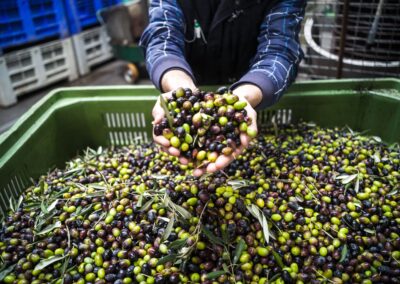
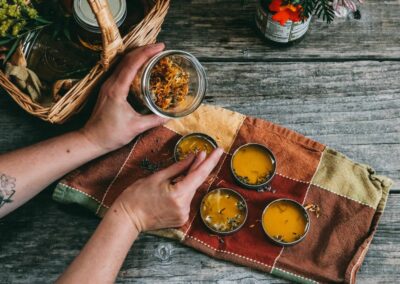
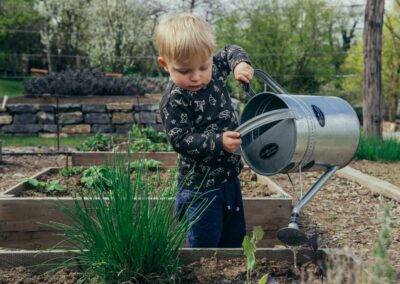
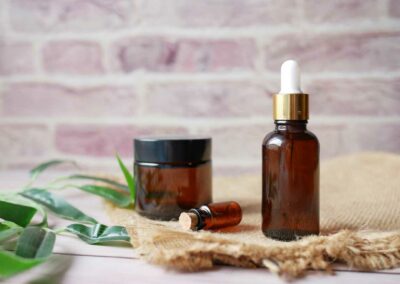

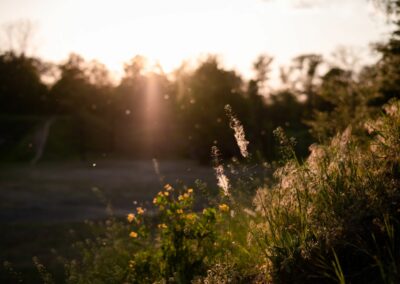
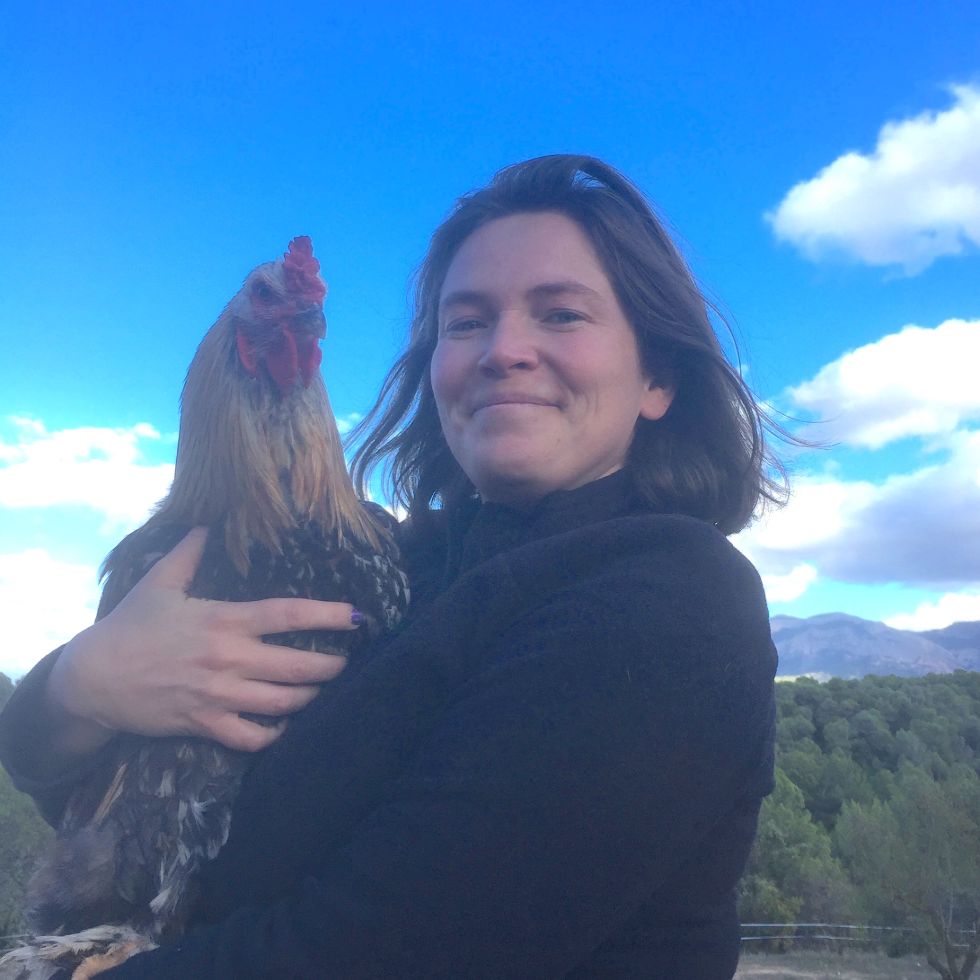
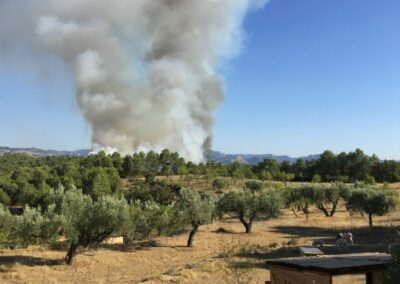
0 Comments